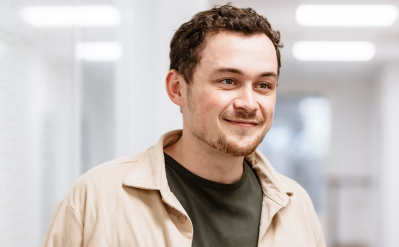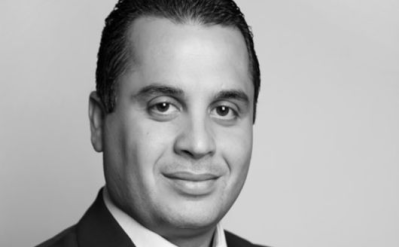News

How to launch a venture with the SKEMA incubator - Philippe Chereau, Director of SKEMA Ventures
Philippe, would you introduce yourself briefly?
After graduating from EDHEC in 1989, I worked for three years in the chemical industry at Dow Chemical (one of the leaders worldwide and a pioneer in the concept of intrapreneurship) before spending more than ten years as an entrepreneur in the life sciences. It was a particularly rich period with blitzscaling companies and an IPO. Then the desire to pass on my knowledge and help others led me to head KPMG’s strategy consulting activities in France’s PACA region. Next, after setting up the business consulting division of the Nice-Côte d’Azur Chamber of Commerce and Industry, I started working on a long-time goal of mine that I had set aside: getting a PhD. It was a very busy four-year period during which I conducted my professional activities while also doing my research work at SKEMA and Aix-Marseille University, culminating in my viva in 2012. In 2011, SKEMA offered me the opportunity to get the MSc Entrepreneurship and Innovation up and running again. That was my mission as a lecturer and researcher until 2017, when I took the helm of SKEMA Ventures to deploy entrepreneurship beyond the dedicated programmes and tracks.
What is an incubator in a management school?
What it should be, and this is the SKEMA Ventures mission, is a support system to encourage the entrepreneurial spirit of students (and alumni), and assist with ideation, structuring the project, setting up the business and growing it. Incubators are there to fan the entrepreneurial flame and encourage budding entrepreneurs to take the plunge. At SKEMA Ventures, we focus on projects with a positive impact.
Who can be incubated at SKEMA Ventures?
The SKEMA Ventures incubation system, called the Venture Factory, is open to all SKEMA alumni and students, regardless of their year of graduation or their degree type (BBA, PGE, MS, MSc, MBA), but also to any team providing one of the co-founders is from SKEMA. Unlike other schools, we have deliberately taken an inclusive approach. Our goal is to make a social, societal or environmental impact through business creation.
What types of projects can the students and alumni work on at SKEMA Ventures?
Any type of venture that has a positive impact and growth potential.
The projects must meet very specific criteria to be accepted for incubation. These criteria are outlined in the SKEMA Ventures charter. The projects taken on by the Venture Factory should:
1) have a mission aligned with the UN’s Sustainable Development Goals,
2) be innovative (the innovation can be of a technical, technological or social nature for example, or in the marketing or business model, etc.),
3) be scalable,
4) be past the mere idea stage, with an initial market study and some accurate financial projections.
What criteria do you use to select the projects you will incubate?
In addition to the criteria mentioned above, we pay close attention to the entrepreneurial qualities of those who come to us with a project. Incubation by SKEMA Ventures is not a given, it’s a mutual commitment in a spirit of give and take. In the past we’ve had startups for which we pulled out all the stops, helping with market validation, business model testing, providing legal support, and even connecting with personal contacts for the first sales. And then suddenly the startup wins six months of free office space in a big startup space in Paris through a pitch competition and the entrepreneurs stop mentioning SKEMA Ventures altogether. This doesn’t happen anymore; we make everything clear from the outset. It’s also a good lesson for the entrepreneurs: in business, it always pays to be loyal. This approach has fostered real cooperation between the entrepreneurs. I must say that this has also been especially helped along by the SKEMA Ventures clubs on each campus, as they work at educating people about the entrepreneurial spirit and, more recently, have been doing a remarkable job of pre-coaching.
How do you support the budding entrepreneurs?
We help them individually or collectively, as needed, by providing them with human resources (the Venture Factory managers, who are often entrepreneurs themselves, and their network inside or outside SKEMA on each campus), with tools and methods that are complementary to what they are learning or have learned in the course of their studies, and an entire ecosystem that is essential to entrepreneurs from the idea stage through to scaling. You’ll have no doubt understood that our incubation system was designed by entrepreneurs for entrepreneurs. We’ve put in place everything we would have loved to have when we were getting started.
In practice, as soon as an opportunity has been identified, the future entrepreneurs are supported in validating the opportunity and formulating their business idea. They are then guided through building a business model that will allow them to turn the idea into a viable value proposition, and through putting together a business plan to bring this business model to fruition. We then help the entrepreneurs to set up their business (including from a legal standpoint) and finally to access the market and financing, working very closely with our networks of partners.
How long does the incubation programme last?
It’s not a programme, it’s a business creation support system SKEMA students and alumni can turn to at any time during their studies or after graduating. Officially, businesses are incubated for an 18-month period, renewable once. In practice, we continue to support entrepreneurs who started their business more than 5 years ago. But in these cases, it’s more about advising them on their growth strategy.
In your opinion, what sets SKEMA Ventures’ support apart?
It’s the triple combo: training-support-community. We are a school incubator. This is a very important point. As a complement to SKEMA Business School’s degree programmes, the SKEMA.VENTURES platform is the digital medium for a specific corpus of training modules, methods and tools dedicated to entrepreneurship. While the entrepreneurs are being incubated, we make it a point of honour to check that they are applying the knowledge gained in their studies. In a way, SKEMA Ventures is a “litmus test” of how well our school’s teachings have been assimilated. Consequently, we exchange regularly with the heads of the PGE and BBA programmes. Finally, the Venture Factory is built on a learning community made up of the school’s faculty, the community of alumni, partners from each local ecosystem... and the community of SKEMA students. This community, aptly called the Venture Family, functions cooperatively in real time. As such, it is nourished by the individual and collective experiences drawn from each entrepreneurial venture.
Are any mentors or business angels part of the incubator?
There are over 200 experts in the Venture Family, 80% of which are alumni. As for business angels, we have partnerships in place with them for each campus, just as we do with all the key players in our ecosystems, as they are essential to the success of our entrepreneurs. The numbers speak for themselves: our entrepreneurs have a five-year survival rate of over 91% and a ten-year survival rate of over 88%
Can you give us some examples of great success stories that have come through the incubator?
Over the past ten years, the most emblematic are Monpetitbikini.com (Audrey Lieutaud, PGE 2007); Flying Eye (now Azur Drones) - (Xavier Desseaux, PGE 1994); MyCV Factory (Pauline Lahary, PGE 2012); ViiBE, web video assistance (Marc Prempain, PGE 2017); Père & Fish (Antony Giordano, Ava Maisani Casanova, Charles Cagnac and Alexandre Rafaitin, SKEMA 2017); Wibes, sustainable sneakers (Aurelie Gisclon, BBA 2019 and Nicolas Raudrant, MSc 2018); Time N'Joy, an events plateform (Axel Hutin, BBA 2016); Whympr, a community app for mountain and outdoor activities (Tim Maclean, PGE 2005); Sublimeurs, digital restaurant marketing (Alaude Lefebvre, PGE 2019); and more recently Ensème, trading in the upcycled cosmetics sector (Christelle de Châlus, PGE 2004); Odysway, which has successfully re-imagined the immersive travel offering in the very complicated context of a pandemic and is guided by a responsible and ethical approach (Romain Masina, PGE 2015). But also Nono by ChargeMe, which provides battery charging stations for mobile phones (Theo Rouilly, MSc 2019); Poline, which has just successfully launched its first range of vegetable jams after an exceptional crowdfunding campaign (Margo Millet, PGE 2022); and Somanity, which develops exoskeletons thanks to 3D printing – groundbreaking! (Mathieu Merian, BBA student).
What is SKEMA Ventures planning for 2023?
Our proximity to entrepreneurs makes the incubator ideal for conducting applied research into entrepreneurship. In partnership with Opinionway and the magazine Challenges, my colleague Pierre-Xavier Meschi and I have developed the first entrepreneur and startup founder trust index, “indice ICC”, which will be presented officially in early 2023.
SKEMA’s expertise in AI also offers wonderful opportunities for broadening the range of possibilities in ideation and getting around certain startups’ lack of resources. We are looking into the ways SKEMA Ventures could benefit from this expertise.
A few figures
The number of businesses that have come through the incubator since its inception
Since September 2017, we have incubated 438 projects, 57% of which had, as their primary aim, at least one of the UN’s Sustainable Development Goals.
The number of direct jobs created by these startups
On average, each startup has created 9 jobs three years after its creation.






